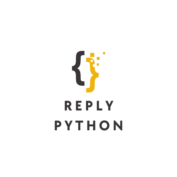 When delving into the world of Python programming, navigating through challenges and roadblocks is inevitable. One invaluable resource that programmers turn to for solutions and insights is Stack Overflow. This dynamic online community serves as a treasure trove of knowledge, where developers can seek advice, share expertise, and troubleshoot coding dilemmas.
When delving into the world of Python programming, navigating through challenges and roadblocks is inevitable. One invaluable resource that programmers turn to for solutions and insights is Stack Overflow. This dynamic online community serves as a treasure trove of knowledge, where developers can seek advice, share expertise, and troubleshoot coding dilemmas.
For Python enthusiasts, Stack Overflow Python is a hub of collective wisdom, offering a platform to pose questions, engage with peers, and enhance coding proficiency. Whether grappling with syntax errors, debugging complexities, or exploring best practices, this vibrant community fosters collaboration and learning. Embracing the spirit of open-source camaraderie, Stack Overflow Python empowers programmers to conquer hurdles and elevate their Python prowess.
Stack Overflow Python
The Stack Overflow Python community plays a vital role in supporting developers as they navigate programming challenges and seek solutions. This platform serves as a rich resource for sharing knowledge, receiving guidance, troubleshooting code issues, and enhancing coding skills. It fosters a collaborative environment where programmers can engage, learn, and contribute to the open-source community.
The Role and Impact on Developers
Stack Overflow Python significantly influences developers by providing a platform where they can seek solutions to intricate coding problems, share insights with fellow programmers, and expand their coding proficiency. The community’s impact is evident in the way it empowers developers to overcome obstacles, stay updated with industry trends, and continuously enhance their Python programming skills.
Key Features of Stack Overflow for Python Users
Stack Overflow offers several key features that benefit Python users, enhancing their programming experience and assisting them in solving coding challenges efficiently.
Q&A Framework
Stack Overflow’s question and answer framework allows Python users to post queries, seek solutions, and engage in discussions with a vast community of developers. This framework provides quick access to solutions for a wide range of Python-related issues, enabling users to resolve coding dilemmas promptly.
Tagging and Categories
The platform’s tagging and categorization system ensures that Python questions and answers are organized effectively, making it easier for users to search for specific topics. By tagging questions with relevant keywords and placing them in suitable categories, Python developers can navigate the platform seamlessly and locate relevant information swiftly.
Common Issues Addressed in Python Discussions
When troubleshooting Python code on Stack Overflow, developers often encounter common errors that require specific debugging tips to resolve efficiently. Below are some prevalent issues discussed in Python communities along with performance optimization strategies.
Debugging Tips and Common Errors:
- Handling Indentation Errors:
- Indentation plays a crucial role in Python syntax. Incorrect or inconsistent indentation can lead to “IndentationError” exceptions.
 Developers should ensure consistent indentation levels to avoid such errors.
Developers should ensure consistent indentation levels to avoid such errors.
- Managing Module Not Found Errors:
- When importing modules in Python, encountering a “ModuleNotFoundError” can occur if the module is not installed or the path is incorrect. Verifying module installation and path configurations is essential to resolve this issue.
- Resolving Syntax Errors:
- Python syntax errors, such as missing colons, parentheses, or quotation marks, can disrupt code execution. Reviewing the code for syntax inconsistencies and typos can help in identifying and fixing these errors.
- Addressing TypeErrors:
- TypeErrors in Python occur when operations are performed on incompatible data types. Developers should pay attention to variable types and ensure proper type conversions to prevent TypeErrors during program execution.
- Efficient Data Structures and Algorithms:
- Utilizing appropriate data structures and algorithms can significantly impact the performance of Python code. Choosing the right data structures like dictionaries or sets and efficient algorithms for tasks can improve runtime efficiency.
- Avoiding Redundant Operations:
- Eliminating redundant operations in code can enhance performance. Developers should review their code to identify and remove any unnecessary computations, loops, or redundant function calls that do not contribute to the desired output.
- Implementing Caching Mechanisms:
 Implementing caching mechanisms, such as memoization or using libraries like functools.lru_cache, can optimize performance by storing and reusing computed results. Caching frequently accessed or expensive function outputs can reduce processing time.
Implementing caching mechanisms, such as memoization or using libraries like functools.lru_cache, can optimize performance by storing and reusing computed results. Caching frequently accessed or expensive function outputs can reduce processing time.
- Profiling and Benchmarking:
- Utilizing profiling tools to identify performance bottlenecks and benchmarking code segments can help developers pinpoint areas that require optimization. Profiling enables in-depth analysis of code execution, leading to targeted performance enhancements.

